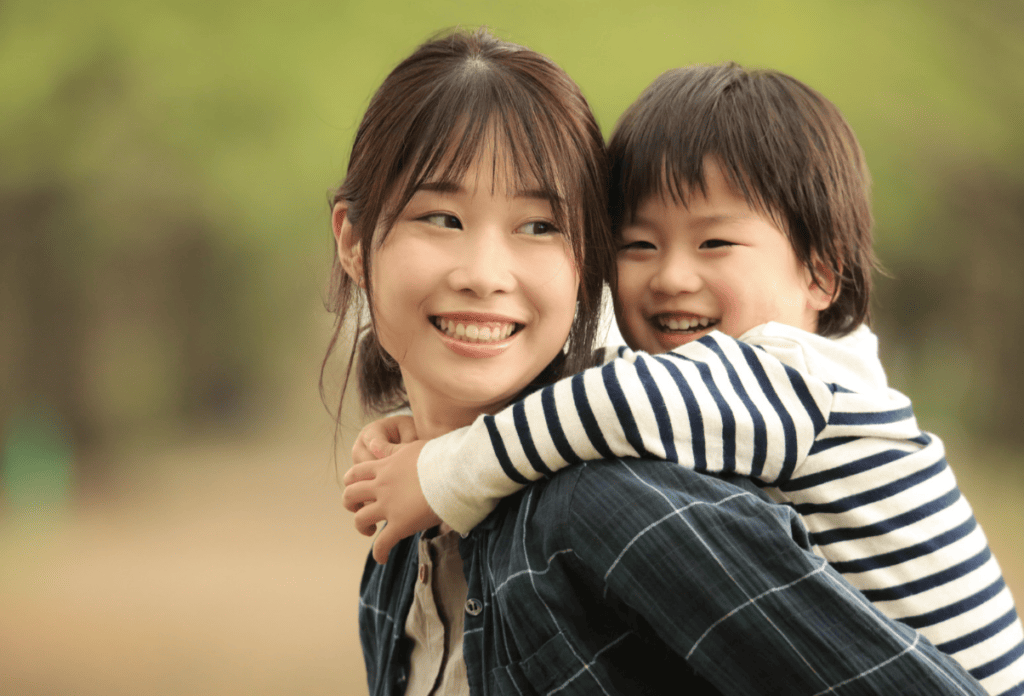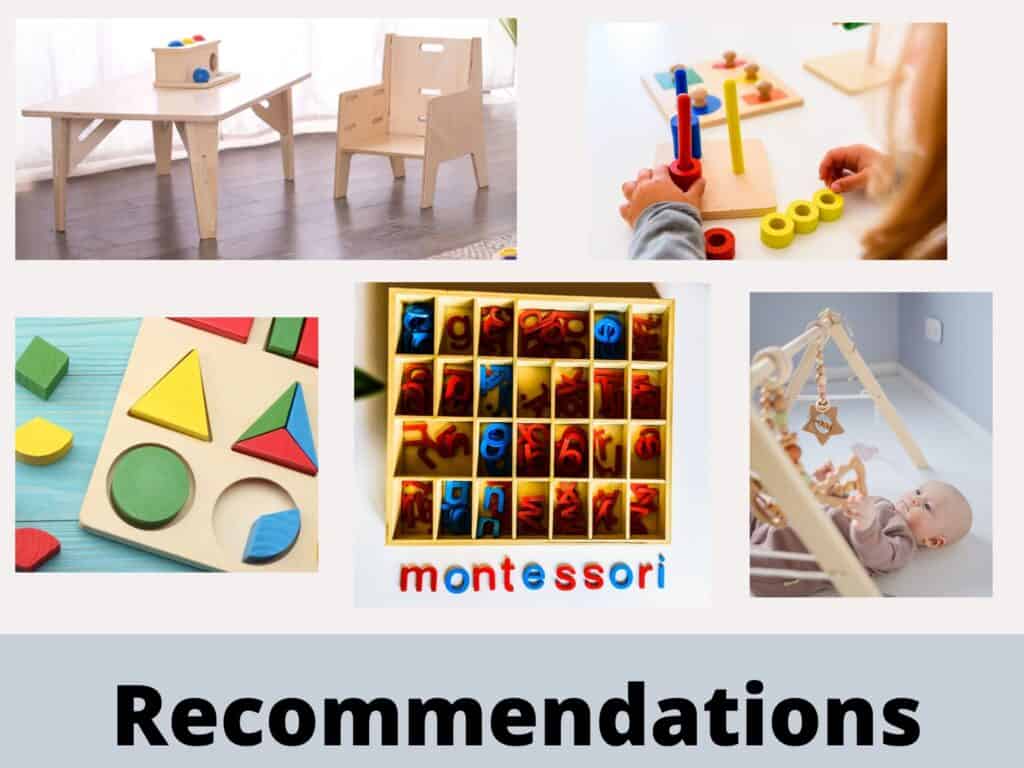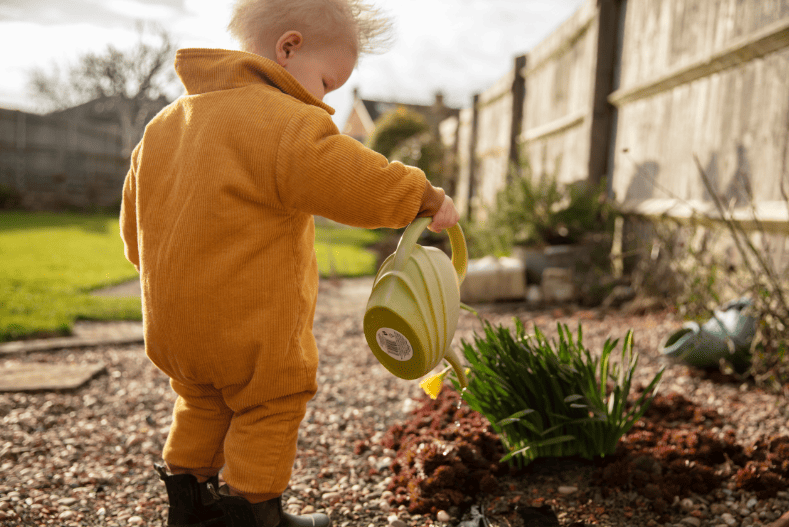If you follow parenting content on social media, you’ve likely noticed that content on gentle parenting pops up everywhere. You may be wondering if gentle parenting is merely a passing TikTok fad or if it is more substantial than its trendiness would suggest. We’re here to let you know that gentle parenting is the real deal and it is gaining popularity because child-rearing experts, educators, and parents around the world agree.
Gentle parenting is popular because it is an evidence-based method for raising empathetic, self-sufficient, and emotionally secure children. Gentle parenting helps parents connect with their children by modeling respect and understanding. Children learn how to regulate their emotions and therefore their behavior- a skill they can carry into adulthood.
Gentle parenting can be challenging but it is beneficial to parent and child alike. That’s why we’ve outlined all the basics on this parenting method and the reasons why it is taking the internet by storm.

What is Gentle Parenting?
Gentle parenting is a child rearing method that utilizes a child’s intrinsic desire for social connection and emotional self-regulation as a guide for good behavior. This differs from traditional parenting methods that use extrinsic rewards or fear-based punishment to coerce a child to behave well. A gentle parent works with their children to help them identify and cope with the emotional motivation for their misbehavior and teaches them ways to redirect their frustrations to behave appropriately.
Although this method discourages the use of traditional punishments such as spanking and time outs, gentle parents are not permissive. Setting and maintaining boundaries is a cornerstone of successful gentle parenting. Parents must set unwavering limits and consistently maintain them without rote punishment or disrespecting a child’s physical or emotional needs.
Gentle parenting is responsive, not reactive; a gentle parent supports a child’s needs for emotional support and does not react to the ways misbehavior may affect or trigger the parent. This means gentle parents must remain calm in the face of chaos and work hard to manage their own emotions as well. Learning to become a model of empathy, respect, boundary-setting, and self-regulation is the best way to pass these skills onto your child.
How Do Gentle Parents Promote Good Behavior?
Gentle parents promote the use of “time ins” to teach their kids how to cope with their feelings and discourage misbehavior. A time in is different from a time out because the parent stays with the child during a time in and, once the child calms down, communicates with him or her about the situation that triggered the unacceptable behavior. A gentle parent tries to empathize with the child’s feelings, clearly denounces the misbehavior and explains why it is wrong, then offers better ways to respond to similar situations in the future.
But gentle parenting isn’t just about discipline; it’s important to applaud your child’s good behavior too. Offer your children sincere, specific praise when you catch them behaving well. Compliment your child’s efforts and virtues rather than appearances or natural talents. This positive reinforcement encourages your children to behave well and lets them know exactly what behaviors you are proud of and why they are important to you.
What are the Benefits of Gentle Parenting?
Unlike traditional parenting methods, gentle parenting does not use fear-based punishment to coerce children to obey. These systems often focus on punishment and obedience rather than teaching children appropriate behavior, emotional regulation, and empathy. Gentle parenting guides children toward appropriate behavior by fostering a secure emotional connection between parent and child. This creates a safe environment for children to learn how to cope with their frustrations and build problem-solving skills they will use for the rest of their lives.
Children who are parented with loving yet firm parents fare the best throughout childhood and into adulthood. Additionally, these children maintain the strongest relationships with their parents throughout their lifetimes. Years of research have shown that the children who were raised with authoritative parents were most likely to grow up to be secure, self-sufficient, and empathetic adults. Gentle parenting is a subcategory of authoritative parenting because it requires caregivers to be highly responsive to their child’s needs and also highly demanding that children adhere to the boundaries they set.
Gentle parenting is also great for parents because it shapes them into kinder, more patient, and more emotionally intelligent people. It’s hard to be a gentle parent; remaining calm when you’re frustrated with your child’s explosive behavior is no easy task. But gentle parenting calls for caregivers to be responsive, not reactive. Reactive parents lash out at their children to force them into obedience. These children are only extrinsically-motivated to behave well because of the threat of punishment or the promise of a reward. Responsive parents attend to a child’s need for emotional support before setting a boundary and redirecting the child toward better behavior.
Children who are intrinsically-motivated to behave well (through parental connection and emotional regulation) are more likely than extrinsically-motivated children to behave well and make good choices in the long term. Parents, too, become more kind-hearted, empathetic people when they practice gentle parenting in their homes.
Is Gentle Parenting a Trend?
Gentle parenting is gaining traction on social media platforms because caregivers are beginning to recognize the benefits of this method and are constantly discovering new ways to connect with their children during the harder moments of parenting.
Society today is more conscious of treating people justly and this is reflected in the parenting styles that are gaining popularity. After generations of punishment-based child rearing, we are beginning to see the ill effects of such methods and the value of treating our children with the respect, love, and guidance they deserve.
The term “trending” has a bad connotation- it implies something is an insubstantial fad that will fade away as quickly as it rose to popularity. Although the term “gentle parenting” is relatively new, the principles behind it are not. For decades, those who have parented their children with love and respect have reaped the benefits of raising good people. Don’t assume just because something is trending that it lacks substance. Gentle parenting is beneficial to everyone and it is here to stay.
For more information, check out our articles on how to start gentle parenting and how Montessori is aligned with gentle parenting.







